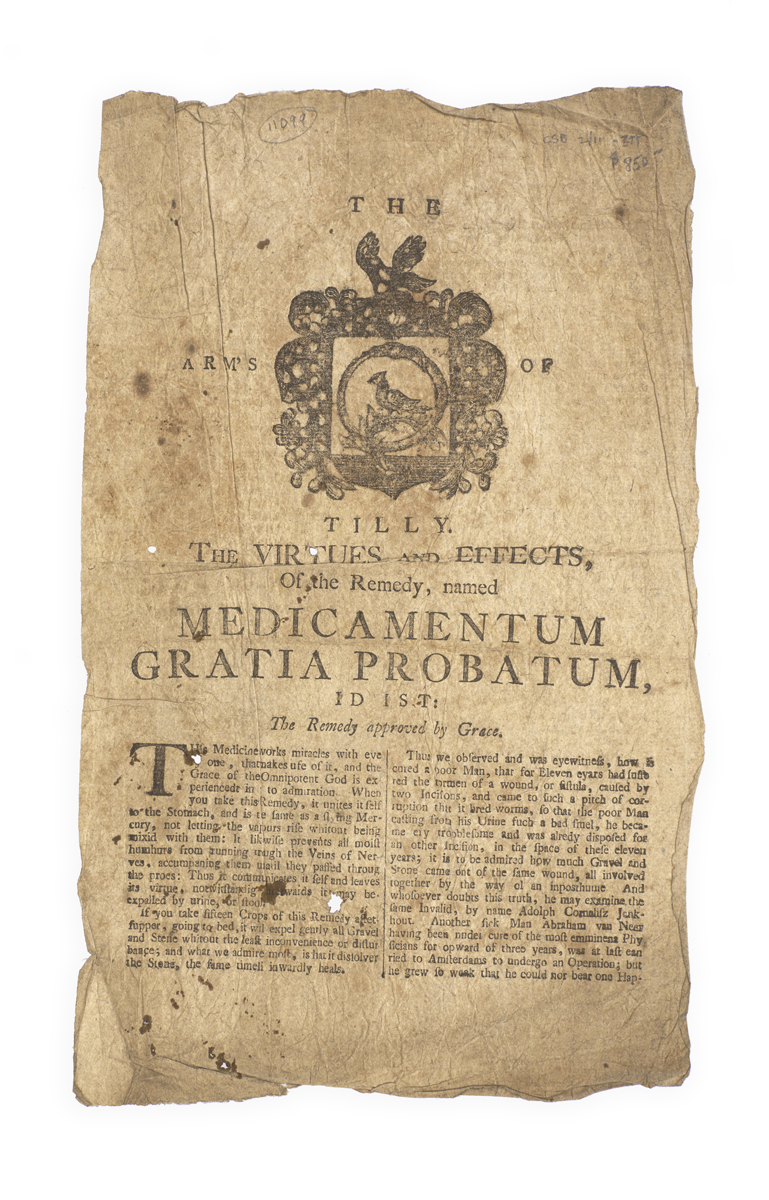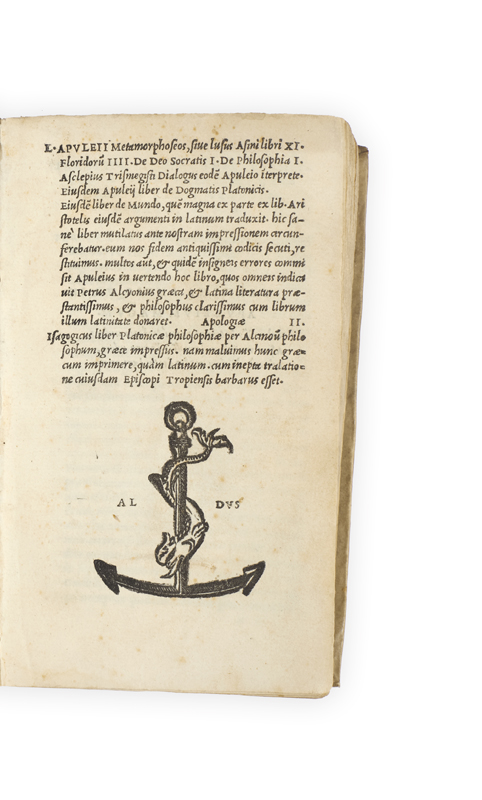
DUTCH CURE?
ARM’S OF TILLY (The).
The Virtues and Effects, of the Remedy, named Medicamentum gratia probatum, id ist: the Remedy approved by Grace …
[Colophon:] Printe [sic] by John Enschedé, Printer of the City of Haarlem in Holland, [c. 1764–73].
Folio broadside, printed on both sides, with a large woodcut device at the head (surrounded by the words ‘The Arm’s Of Tilly’); printed on poor quality paper (Maid of Dort watermark) and consequently toned, small inkspots, a few small holes touching the odd letter, else very good.

Added to your basket:
The Virtues and Effects, of the Remedy, named Medicamentum gratia probatum, id ist: the Remedy approved by Grace …
Unrecorded printing of an advertising broadside for Haarlem Oil, a panacea containing ingredients such as sulphur and terebinth oil which is still sold today as a dietary supplement. The oil was first marketed in 1696 by Claes Tilly, a Haarlem schoolmaster, who was succeeded by his step grandchild Leendert Jonkhout, and then in 1762 (or 1764 here) by Claes (Nicholas) de Koning Tilly, who seems to have been responsible for expanding the business into more international markets.
Originally the oil was sold for urinary complaints, but the current advertisement, execrably printed and littered with grammatical and typographic errors, claims its usefulness for bruises, scurvy, dropsy, the French disease, worms, heart murmurs, migraines, short-sightedness, ulcers, colic, and much much more.
ESTC records six versions of this broadside, in a total of seven copies, of which none conforms to the present (most notably in the error ‘Id Ist’ in the title); at least one (ESTC N69801) is visibly a nineteenth-century printing, with far fewer typographic errors. All are undated but mention Nicholas de Koning Tilly as ‘Author of the same, since … 1764’, and list those who will succeed him after his death. There is one unique example of an earlier advertisement in English, at the British Library, Pouer an[d] working of the Medicamentum gratia probatum (c. 1723, printed for an Amsterdam retailer), and we have traced versions of the present broadside in Dutch, Swedish, German and Portuguese.
The printer Johannes Enschede (1708–1780), succeeded his father Isaac, who had founded the company in 1703; from 1774, the imprint changed to incorporate Johannes’s sons.

